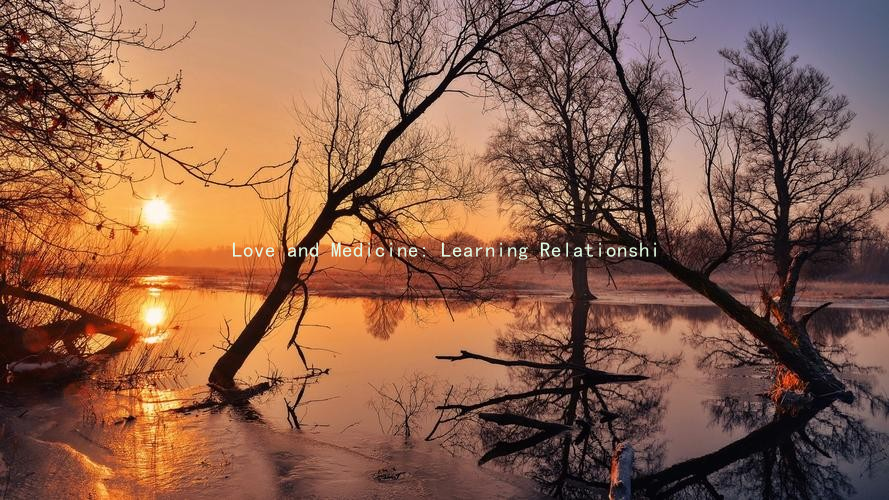Love and Medicine: Learning Relationship Strategies from the Doctor’s Office
In the realm of love and relationships, we often look for guidance in books, seminars, and podcasts. However, a less conventional source of wisdom can be found in the doctor’s office. Surprisingly, the strategies employed by healthcare professionals can inform our approach to dating and romantic partnerships. Here’s how the principles of medicine can translate into effective relationship skills.
Diagnosis and Active Listening
Just as doctors must listen attentively to their patients to diagnose their ailments, understanding your partner requires active listening. Instead of merely hearing words, you should strive to comprehend feelings and underlying issues. When a partner shares their thoughts or feelings, echo back what youve heard and ask clarifying questions. This practice not only validates their emotions but also deepens the connection, fostering an environment where both parties feel heard and valued.
Treatment Plans and Setting Goals
In medicine, after a diagnosis, physicians create treatment plans tailored to the patient’s needs. In relationships, this could translate to setting mutual goals. Discuss what you both want from the relationship—whether it’s long-term commitment, shared experiences, or personal growth. Establishing these goals together ensures both partners are aligned and working towards a common future, reinforcing the bond between you.
Preventive Care and Maintenance
Just as regular check-ups can prevent health issues, consistent maintenance is vital in relationships. Schedule regular relationship check-ins to discuss what’s working and what might need improvement. This proactive approach can help identify and address small issues before they grow, ensuring the relationship remains healthy. Regular date nights, surprise gestures, and open dialogues about feelings can keep your emotional connection strong.
Emergency Procedures and Conflict Resolution

In the medical field, emergency procedures are crucial for handling crises. Similarly, conflicts in relationships require prompt and effective resolution strategies. Instead of avoiding disagreements or letting resentment build, address issues head-on using constructive communication techniques. Employing “I” statements—such as “I feel hurt when…”—can foster understanding rather than defensiveness. Aim for empathetic dialogue rather than a combative approach; after all, you are partners, not adversaries.
Healthy Lifestyle and Personal Growth
Doctors often stress the importance of a healthy lifestyle for well-being, highlighting diet, exercise, and mental health. In relationships, this translates to nurturing both individual and collective well-being. Encourage each other’s personal growth; be supportive of your partner’s interests and passions. Balance is crucial; a healthy marriage or partnership thrives when both individuals continue to grow personally, bringing richer experiences back to the relationship.
Referrals and Seeking Help
Sometimes, a doctor refers a patient to a specialist for additional support. In relationships, don’t hesitate to seek help if needed. Therapy or counseling can provide invaluable tools for couples facing challenges. A professional neutral party can help navigate complex emotions and communication styles, allowing both partners to learn new strategies for maintaining a healthy bond.
Side Effects and Accepting Imperfections
Every medication can have side effects, and relationships come with their ups and downs too. Accept that no partner is perfect, and issues will arise. Embrace the imperfections; these nuances add depth to the relationship. Approach each setback as an opportunity for growth rather than a reason to quit. Building resilience together can strengthen the foundation of your love.
In conclusion, the insights from the medical field present an innovative lens through which we can view our romantic relationships. By applying these strategies—active listening, collaborative goal setting, proactive maintenance, effective conflict resolution, personal growth, and the acknowledgement of imperfections—we can cultivate healthier, more fulfilling partnerships. Love, much like good health, requires attention, effort, and continuous care. Embrace the journey with patience and compassion, and you may find your relationship thriving.





